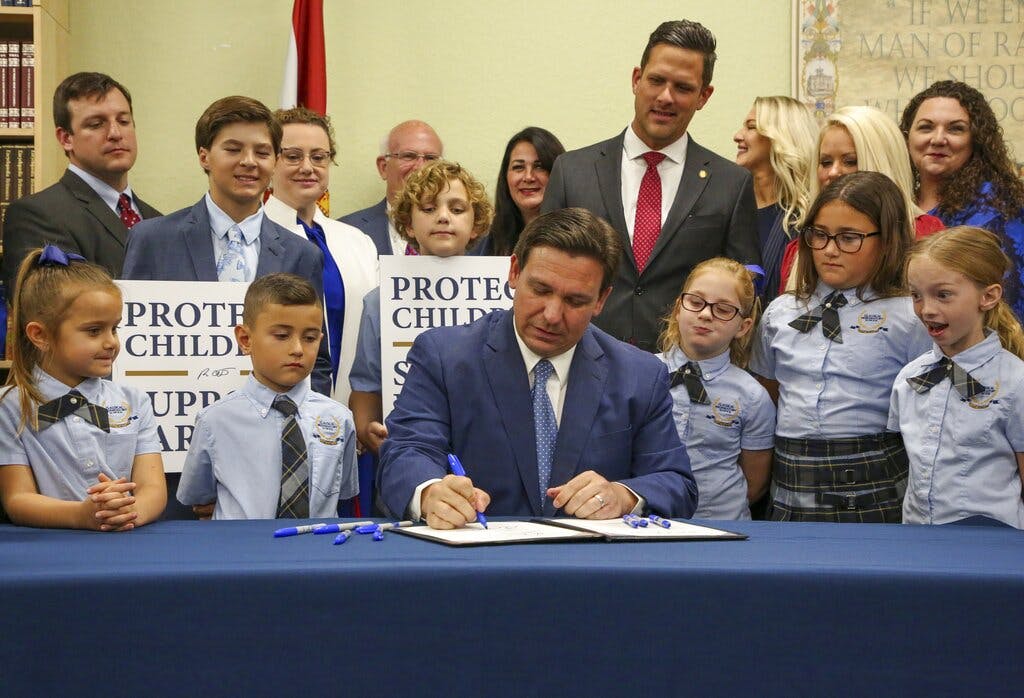In Post-Roe World, Florida Takes Center Stage as Abortion Battleground
The abortion battle in Florida is shaping up to be one of the crucial contests in a nationwide drama.

The abortion battle in Florida is shaping up to be one of the crucial contests in the post-Roe future inaugurated by the Supreme Court’s decision in Dobbs v. Jackson Women’s Health.
Attorneys for abortion clinics and a physician, Shelly Hsiao-Ying Tien, filed a brief with the Sunshine State’s supreme court on Wednesday urging it to consider an appellate decision that tossed out a temporary injunction against Florida’s abortion ban.
That ban, codified as “HB5,” was passed in March and supported by Governor DeSantis. It prohibits the procedure after 15 weeks of pregnancy in nearly all circumstances. It contains no exceptions for rape or incest, but does make allowances for the health of the mother.
In July, a state circuit judge, John Cooper, ruled that HB5 ran afoul of a “right to privacy” encoded in the Florida constitution. Section 23 of that document reads: “Every natural person has the right to be let alone and free from governmental intrusion into the person’s private life except as otherwise provided herein.”
In a 2-to-1 decision, the Florida appeals court overturned that injunction, deciding that the clinics and physician who served as plaintiffs could not meet the legally required standard of “irreparable harm” from the ban. That holding means that the law remains in effect despite Judge Cooper’s decision.
The clinics have argued that HB5 is the cause of “widespread, irreparable harm to Floridians who are being denied their fundamental rights to make deeply personal decisions about their families, bodies and health free of government interference.”
In another closely followed abortion case in Florida, a 16-year-old was this month blocked from securing an abortion, as a trial court found that she “had not established by clear and convincing evidence that she was sufficiently mature to decide whether to terminate her pregnancy.” That decision was affirmed by a court of appeals.
In declining to allow the minor to bypass the parental notice and consent required by Florida law, the trial court found that she “may be able, at a later date, to adequately articulate her request, and the Court may re-evaluate its decision at that time.”
After filling a vacant seat earlier this month, Mr. DeSantis has now appointed four of the Florida supreme court’s seven members.

